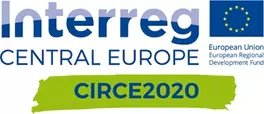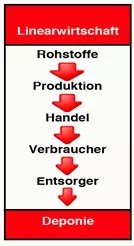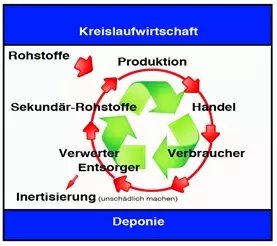Dissemination of the circular economy concept in local production regions in Central Europe - operational waste prevention through circular economy (CIRCE2020)

Funding:
Interreg Programme CENTRAL EUROPE, European Regional Development Fund
Funding period: 1 July 2017 - 31 May 2020
Project partner:
The Department of Environmental Engineering - Waste Treatment and Resource Management at the University of Innsbruck is supporting Abfallwirtschaft Tirol-Mitte (ATM) GmbH in the implementation of the project in the pilot region of Tyrol. In addition to ATM, seven other partners from four countries are involved (Italy, Poland, Hungary, Croatia).
Project description:

Our traditional economic system is based on the assumption that raw materials are available in unlimited quantities for an unlimited period of time. In our world of finite resources, however, this traditional system is increasingly being recognised as outdated and efforts are being made to move towards a system in which raw materials are reused and reused as often as possible, in cycles or in cascade use. In this renewable system, the consumption of fresh raw materials is minimised, resulting in much less waste and emissions.
The circular economy follows the principle of closing open linear material flows and creating closed loops. In open linear material flows, the incoming raw materials are largely transformed into waste through production and utilisation chains (see Figure 1 - Principle of open linear material flows).

In closed, circular material flows, on the other hand, waste and residual materials are utilised as secondary raw materials in further production processes (Figure 2 - Principle of closed circular material flows).
The aim of the project is to create industrial symbioses between manufacturing companies. This requires the following steps:
- Identification of companies with suitable residual materials
- Selection of suitable residual materials
- Analysing the selected residual materials from one process for their suitability as secondary raw materials for another process
- Evaluation of the ecological and economic performance of the selected residual materials with the help of life cycle assessments and life cycle cost calculations
- Implementation of the recycling of secondary raw materials in pilot projects
Contact:
University of Innsbruck
Univ-Prof. Dr.-Ing. Anke Bockreis
Technikerstrasse 13
6020 Innsbruck
anke.bockreis@uibk.ac.at
